Dedicated to delivering outstanding customer service to both carriers and policyholders, BSA Claims Services is Florida’s largest private all-lines claims administration and adjusting firm.
Quick Links
Get In Touch
-
7800 Belfort Blvd
Suite 200
Jacksonville, FL 32256 - (877) 761-2332
- [email protected]
Newsletter
By submitting your email, you are consenting to receive marketing emails from: BSA Claims Service. You can revoke your consent to receive emails at any time by using the SafeUnsubscribe® link, found at the bottom of every email.
© Copyright 2025 BSA Claims Solutions. All Rights Reserved.
Digital Marketing, Web Design, Hosting, and Maintenance by WheelHouse Online.
